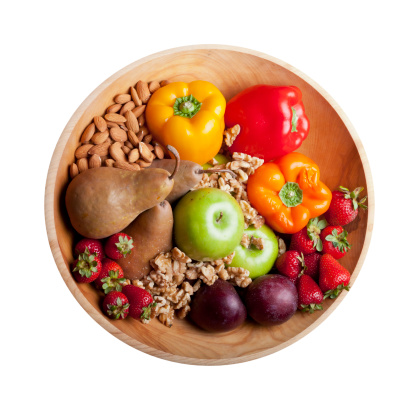
What Should I Eat?
Most folks are at a complete loss when it comes to really knowing what they should eat for optimal health and are constantly asking me “What Should I Eat?”. On the other hand some clients tell me, “I eat really well”. When discovering the details of what that perception means for them, I am reminded of the misleading info confusing the masses. We are bombarded with advice… It’s good for you, its bad for you, it causes cancer, it prevents cancer.
If you are drowning in confusion and frustration, I am here to share with you what you should eat and expose some of the surrounding diary, meat, fats, and processed carbs aka: sugar, offering some solutions for your health, vitality and weight management.
What Foods to Avoid and Why:
A common challenge with the dietary confusion results from the fact that when hearing something often enough, most people take it to be the truth. So goes the calcium-cows milk myth and decades of advertising convincing us to drink milk. Did you know that Dr Spock, the baby expert tells us milk is meant for baby cows? It will nourish that cow from 60 pounds to 600 within approximately 6 months.
Numerous scientific studies relate dairy consumption to such health issues as arthritis, asthma, diabetes, ear infections, allergies, intolerance’s, gout, kidney stones, iron deficiencies, indigestion and more. Does drinking milk really prevent osteoporosis?
Fact:When hearing something, often enough, most people take it to be the truth.The reality is that every society with a high consumption of protein is challenged with osteoporosis and dairy is high in protein. This disease is almost non-existent in certain areas of countries such as of Africa and Asia where dairy and animal protein consumption is minimal. In addition to this ‘dairy dupe’, dairy products of today’s world are tainted with hormones, herbicides, pesticides, antibiotics, dioxins and excess protein.
Experts tell us to place our concerns upon calcium retention rather than consumption and limit daily protein intake to approx. 15 to 20% of our daily intake. The average in North America is currently 30% while the World Health Organization suggests 5%. Count the protein grams in your foods including dairy and grains to get an idea of the percentage in your average daily diet and read on for more about the effects of high protein consumption.
“The association between the intake of animal protein and fracture rates appears to be as strong as the association between cigarette smoking and lung cancer.” Dr. T. Colin Campbell Animal proteins are fiber-less and full of saturated fats also related to dietary diseases including cancer.
Our bodies are hard wired like the herbivore with most of our teeth designed for grinding foods such as grains. We have long winding intestines requiring fiber from plant based sources to move food through whereas carnivores have a short stove-pipe like intestine and very acidic digestive juices that are six times stronger than ours. Those high protein diets are a costly way to short term weight loss and long term health risks.
Fake fats are another fearful food abundant in most commercially prepared prepackaged foods and certainly numerous baked goods from crackers and cookies to so-called healthful granola bars and cereals. I emphasize the need to read labels!
Although we still have a long way to go with labeling laws that truly enforce the complete list of ingredients included in the growing, processing and packaging of products, you will get an idea of the contents in the items you buy.
Sugar is also causing numerous health challenges. It is a highly addictive, over refined and over consumed product that leeches nutrients from our own tissues. Look at the labels of almost all prepackaged foods and you will see added sugar in abundance. It is estimated that the average North American consumes over 90 pounds of sugar each year. (Keep in mind that commercial highly processed ‘carbs’ break down to simple sugars within our blood stream causing cravings and addictions to foods virtually void of nutritional value – such foods are full of empty calories and nutrient thieves).
With all of this in mind, take in a full deep breathe and let it permeate and aerate your entire being before slowly exhaling. Continue this slow rhythmic and complete respiration as you ponder the drama of our everyday eating habits in our ‘so called’ civilized world. Consider how the typical dietary approaches affect society and impact the general state of health. Think about your own approach and how you can improve it one meal at a time, day by day.
The guidelines that follow will assist you on your way to well-being, and the health of each of us affects the health of us all, including the planet that sustains us.
The common denominator in preferred foods to eat: GET REAL
Avoid commercial ready-made, prepackaged, processed foods convenience foods. Most are full of ‘fake’ flavors and fats, sadly lacking in nutrients, EFA’s and fiber. These foods rob your body of the necessary nutrients for healthy well-being and are at the root of the vicious cycle of cravings and poor dietary habits resulting in dietary related diseases. Think about your own approach and how you can improve it.
Here are some simple guidelines for what to choose:
• Invest in your self and your loved ones! Buy the best freshest foods you can afford and go organic as often as possible.
• Think in techno color and incorporate the rainbow of colors in fresh vegetables, greens and fruit selections for their cancer fighting Phyto-nutrients!
• Consume foods that look the same as when they were growing.
For example, have you ever seen white or colored sugar, white wheat? Is cows milk orange, or is that unnecessary food dye?
• Find fiber, essential fatty acids, vitamins, minerals and flavor in whole grain carbs: breads, pastas, rice, cereals, grains, flours and dark leafy greens.
• Source out some great dairy alternatives including beverages such as almond, rice, whole grain and soy milks as well as tofu products.Include healthy fats in your everyday eating habits for they are essential to your well-being. Great sources: nuts, seeds, dark leafy greens, avocados, quality oils such as cold pressed olive, sesame, flax, walnut, and grape seed.
• Enjoy plant based proteins in the form of quality ‘whole grain’ oats, pastas, rice, quinoa, kamut, wheat germ, natural flours, nuts, seeds, beans/legumes, soy, Tempeh, sprouts, avocados, mushrooms…
• Choose preservative free baked goods including breads with ‘natural’ whole grain ingredients, quality oils and sprouted grains.
• Select wholesome snacks: fresh or dried fruits, with raw nuts and seeds such as almonds, walnuts, sunflower and pumpkin seeds.
• Eat real nut and seed butters for protein power, fiber, and fabulous fats! Mash avocados or roasted garlic with a little olive oil for a savory butter alternative.
• Replace refined sugars with real maple syrup, unpasteurized honey, molasses, sucanet, organic cane sugar or stevia and pureed fruits.
• Drink lots of water: with fresh lemon juice, or a few drops of organic essentials oils such as peppermint or lemon.
Seek out information from:
www.milksucks.com
www.afpafitness.com
www.davidsuzukifoundation.com
www.alivepublishing.com
By: Teri Gentes – Wellness Coach and Gourmet Nutritionist
Teri R Gentes is an internationally-acclaimed authority on whole self well-being with an instinctual gift for healing. In her powerful and life-changing workshops and consulting sessions she inspires and empowers people all over the globe to honor and uplift their physical, mental, emotional, nutritional, environmental, and spiritual health.



